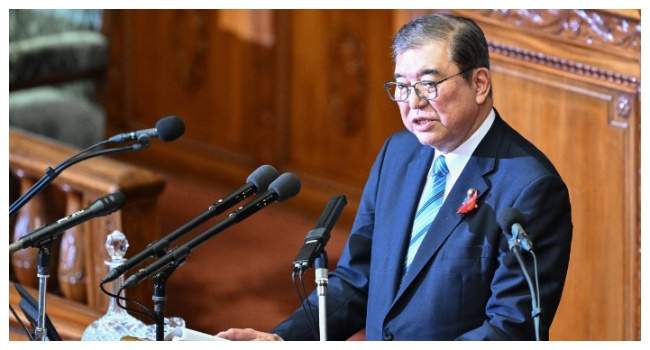Japan’s New Prime Minister Warns of Rising Tensions in East Asia
Japan’s new Prime Minister Shigeru Ishiba has warned that the world is becoming increasingly divided, and that the situation in Ukraine could be a precursor to future conflicts in East Asia. In his first policy speech, Ishiba dubbed the country’s low birth rate a "quiet emergency" and called for measures to support families.
The 67-year-old former defence minister, who took office this week, did not directly mention China, but Japan’s relations with its neighbour have deteriorated in recent years as Beijing asserts its military presence around disputed territories in the region. Ishiba expressed concerns about China’s claims over democratic Taiwan, saying that Japan, the United States, and other allies must remain vigilant.
Ishiba’s comments come amid tensions between Japan and China, which have been heightened by a series of incursions by Chinese military aircraft into Japanese airspace and the presence of a Japanese warship in the Taiwan Strait. Japan has also announced plans to increase its defence spending and boost security ties with the United States and other allies.
In his speech, Ishiba also emphasized the need for Japan to address its demographic crisis, which is seeing its population age and birth rate stay stubbornly low. He called for measures to support families, including flexible working hours, and expressed a desire to boost incomes through a new monetary stimulus package and support for local governments and low-income households.
Ishiba’s government is also facing scrutiny over its plans for the royal family, with only one eligible male heir, Emperor Naruhito’s 18-year-old nephew Prince Hisahito, set to inherit the throne. Ishiba has called for active debate on relaxing the strict succession rules, which require royal women to leave the family when they marry a commoner. A recent poll found 90 percent public support for female succession.
Ishiba’s administration is facing challenges in shoring up support for the ruling Liberal Democratic Party ahead of a general election planned for October 27. Analysts have warned that the absence of a visible growth strategy is a risk, but Ishiba has pledged to work towards ensuring Japan’s economy emerges from deflation.
